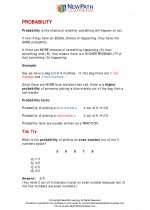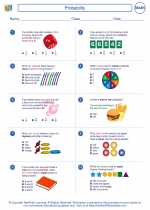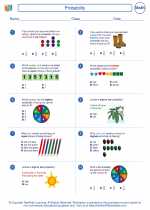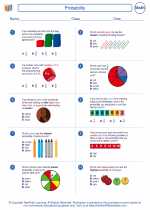Experimental Probability
Experimental probability is the probability of an event occurring based on experimental results from a series of trials or experiments. It is calculated by performing the experiment and recording the outcomes, then determining the probability based on the observed results.
Calculating Experimental Probability
To calculate the experimental probability of an event, you can use the following formula:
Experimental Probability = Number of favorable outcomes / Total number of outcomes
For example, if you toss a coin 20 times and it lands on heads 14 times, the experimental probability of getting heads is:
Experimental Probability = 14 / 20 = 0.7
Study Guide
Here's a step-by-step guide to understanding and calculating experimental probability:
- Perform the Experiment: Conduct the experiment or series of trials to gather data on the outcomes of the event.
- Record the Outcomes: Keep track of the number of favorable outcomes (the event of interest) and the total number of outcomes.
- Calculate the Experimental Probability: Use the formula to determine the experimental probability by dividing the number of favorable outcomes by the total number of outcomes.
- Interpret the Results: Analyze the experimental probability to understand the likelihood of the event occurring based on the experimental data.
Example Problems
Here are some example problems to practice calculating experimental probability:
- Problem 1: If a six-sided die is rolled 50 times and it lands on a 3, 12 times, what is the experimental probability of rolling a 3?
- Problem 2: A spinner is divided into 8 equal sections, with 3 sections labeled "win". If the spinner is spun 40 times and lands on "win" 15 times, what is the experimental probability of winning?
By following the steps and practicing with example problems, you can become proficient in calculating experimental probability.
[Experimental Probability] Related Worksheets and Study Guides:
.◂Math Worksheets and Study Guides Fourth Grade. Probability

 Worksheet/Answer key
Worksheet/Answer key
 Worksheet/Answer key
Worksheet/Answer key
 Worksheet/Answer key
Worksheet/Answer key
